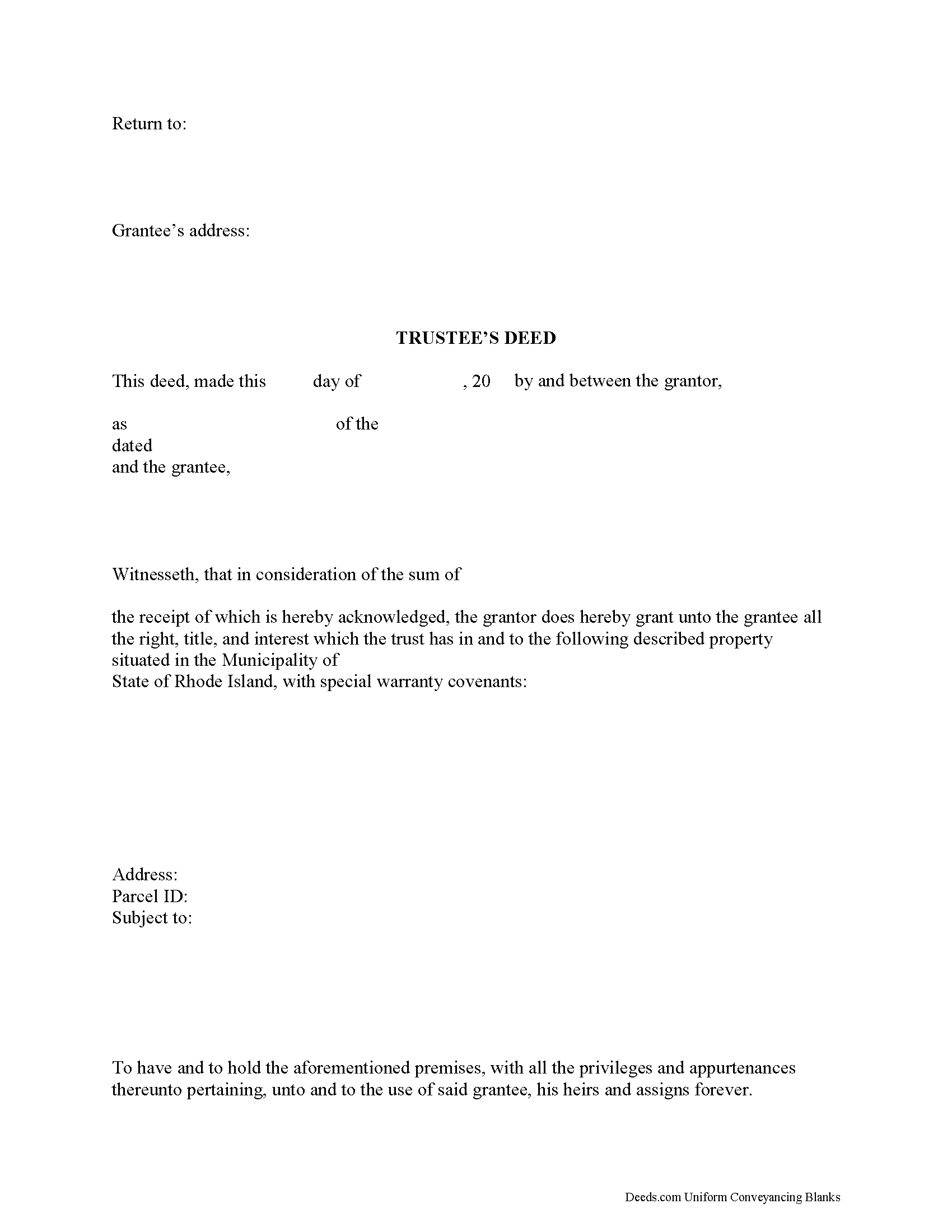Download Rhode Island Trustee Deed Legal Forms

Rhode Island Trustee Deed Overview

Transferring real property from a living trust requires a trustee's deed. Executed by a trustee, the deed is named for the granting party rather than for the type of warranty the deed offers (as with a warranty deed). It is codified at R.I.G.L. 34-11-12(3).
In a living trust, a settlor transfers assets to a trustee, who holds and manages the property for the benefit of a third party (the trust beneficiary). Transfer of real property into the trust is generally completed by a deed executed by the settlor and naming the trustee as grantee.
In order to convey real property from the trust, the trustee acts on powers granted to him by the settlor in the trust instrument. Most trust instruments include a general power of sale, and trustees in Rhode Island may act on their power to sell pursuant to the terms of the trust instrument and R.I.G.L. 18-4-4. Transfers of real property out of trust require an accompanying affidavit or memorandum of trust under R.I.G.L. 34-4-27 confirming the trustee's authority to convey interest in real property held in trust.
Most deeds in Rhode Island fall under one of two categories. Offering a broad level of warranty, a warranty deed contains warranty covenants that the grantor will warrant and defend title against the lawful claims of all persons. A statutory quitclaim deed contains covenants that the grantor will warrant and defend title against the lawful claims of persons claiming under, by, or through the grantor only.
Rhode Island is unique in this aspect; generally, a quitclaim deed simply transfers any interest the grantor may have in the property, offering no covenants or warranties of title. This makes the Rhode Island quitclaim deed more akin to a special warranty deed. In fact, legislation has been introduced to include a designation for special warranty deed covenants into the existing quitclaim deed statutes (see HB 7573). A special warranty deed generally conveys title with the language "with special warranty covenants" on the part of the grantor that he will warrant and defend the title against the claims of persons claiming under, by, or through him (but no one else).
The Rhode Island trustee's deed conveys title in fee simple to the grantee with special warranty/quitclaim covenants of title. (A trustee's deed generally carries a special warranty, as the trustee may have no prior knowledge of the title prior to his role as fiduciary.) The name of each acting trustee, as well as the trust's name and date, appear in the granting clause. The deed should meet all standards for form and content for conveyances of real property in Rhode Island, including a legal description of the subject property and statements of compliance with Rhode Island's residency and fire safety requirements.
The deed must be signed by each trustee in the presence of a notary public before recording in the municipality where the property is located.
Consult a lawyer with questions about living trusts and preparing trustee's deeds in Rhode Island.
(Rhode Island TD Package includes form, guidelines, and completed example)